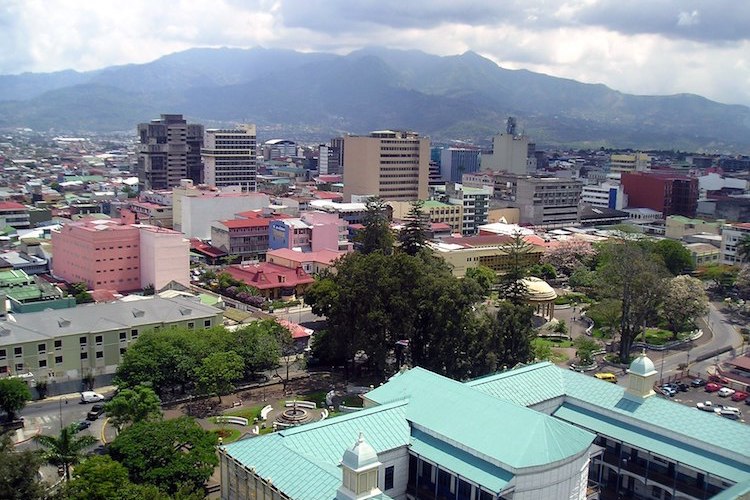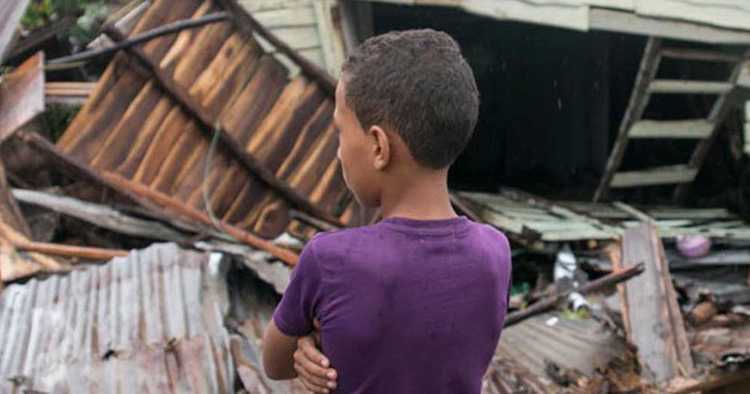NEW YORK (IDN) – With little prior notice from military officials, the U.S. launched a Minuteman III Ballistic Missile on April 25 morning at approximately 5:26 a.m. from Vandenberg Air Force Base. Civilians and residents living near the base, who regularly receive ample notice of missile tests, were left in the dark this time as […]
State of Emergency for Press Freedom in Europe
By ECPMF BERLIN (IDN) – The European Centre for Press and Media Freedom (ECPMF) in Leipzig, Germany, is warning against the dismantlement of freedom rights and the increasing threat against journalists in the EU. “Demagogues and autocrats are fighting the free press because they cannot stand democratic control. Under a corrupt administration the work of an […]
‘Fire and Fury’ in Danger of Becoming Trump’s ‘Mantra’
Viewpoint by Jonathan Power* LUND, Sweden (IDN-INPS) – A speech of General George Patton, a famous World War 2 warrior, has an uncanny resemblance to the philosophy of Donald Trump. “All real Americans love the sting and clash of battle. Americans love a winner and will not tolerate a loser – Americans despise cowards. Americans […]
Costa Rica Advised To Make Growth More Inclusive
By Robert Johnson PARIS (IDN) – Costa Rica, renowned for its ecological footprint, forest protection and abundant biodiversity, has made impressive economic and social progress in recent years, with robust economic growth facilitating near-universal access to education, health care and pensions. But the Central American country is faced with a fundamental challenge: its fiscal imbalance, […]
Kazakh Peacemakers Exchange Experience with Indian Partners
ALMATY (IDN | KazInform) – Kazakhstan militaries are taking peacemaking training in New Delhi jointly with Indian colleagues. The classes are taking place at the UN Training Center. The Kazakhstani peacemakers came to New Delhi to study the Indian experience to apply it in missions. Upon arrival they familiarized with the general provisions, structure and […]
Trump Ends Deportation Protection for Liberians in the U.S.
By Lisa Vives, Global Information Network NEW YORK | MONROVIA (IDN) – Liberians living in the U.S. since a devastating civil war that took 250,000 lives from 1989 until 1997 are now in the crosshairs of the current Trump administration which has terminated their protected status with effect from March 31, 2019. Some five thousand […]
UNIDO Helps Prevent E-Waste Eiffel Towers in Latin America
By Jaya Ramachandran VIENNA | QUITO (IDN) – Waste electrical and electronic equipment (WEEE), comprising old computers, televisions, fridges, mobile phones, and other appliances, also known as e-waste, is expected to reach 52.2 million metric tons by 2021. It is equivalent to the weight of more than 29 million passenger cars, and would suffice to […]
Bolton’s Policy Opinions Would Worsen Proliferation Dangers
By Daryl G. Kimball Daryl G. Kimball is Executive Director of the Arms Control Association. Following is the text of his statement on the choice of John Bolton, former U.S. Permanent Representative to the UN in New York, as President Donald Trump’s National Security Advisor. WASHINGTON, D.C. (IDN) – The United States already faces an […]
Central Asian Leaders Follow Up on Discussions During Kazakh Security Council Presidency
By Santo D. Banerjee NEW YORK (IDN) – When Kazakh President Nursultan Nazarbayev spoke at a high-level meeting of the United Nations Security Council on ‘non-proliferation of weapons of mass destruction: confidence-building measures’ on January 18, the Foreign Ministers of Central Asian countries attended the event. Kazakhstan convened the briefing in its capacity as the […]
Caribbean Faith Leaders Call for Debt Relief and More
By J C Suresh TORONTO (IDN) – Ahead of the next hurricane season in the Caribbean, faith leaders are calling for action from government leaders, the United Nations system, the International Monetary Fund (IMF) and regional development institutions. A statement signed and endorsed by 22 religious leaders from Grenada to Saint Lucia is urging the […]










